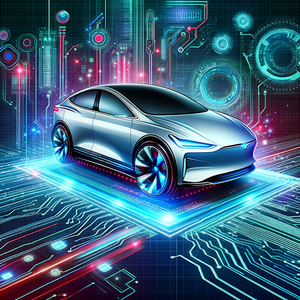To encourage the adoption of electric vehicles, it is important to focus on advancing battery technology which is rapidly evolving. In this post, you will find information on the latest battery technology developments that you should be aware of. Let's charge up now.
Fisker Goes All In On Battery Swapping Tech
Earlier this month, Fisker delivered the first customer Ocean SUV produced by Magna in Austria and began deliveries in Europe, writes Autoweek tech writer Jay Ramey on Autoweek.com earlier this week. This electric SUV is the first in a series of new Fisker models, and US deliveries will begin shortly.
Ramey writes that although the engineering behind the Ocean appears to be established for now, the electric vehicle manufacturer intends to introduce a surprising feature: the ability to swap batteries.
Battery swapping is when an EV owner can switch out an empty battery for a full one in minutes, instead of waiting for hours to charge their vehicle. Fisker CEO Henrik Fisker announced at CES 2021 that the Ocean would soon be equipped with the firm’s proprietary battery swapping technology, known as “Fisker Power Swap.”
The tech should enable EV owners to get back on the road quickly without having to wait for charging times or stop and find a public charging station—perfect for those long highway trips. Fisker is expecting its first customer swaps by the end of 2021.
- Read Jay Ramey's full article about this development on Autoweek.com
Sodium-Ion Batteries Could Be Big News For EVs
By the end of this year, sodium-ion batteries may enter some parts of the battery market and prove to be significant in reducing costs for electric vehicles, writes Casey Crownhard for MIT Technology Review on their website earlier this week.
Sodium-ion batteries could be huge because of their affordability, Crownhard explains. Unlike lithium-ion batteries which require expensive components like cobalt and nickel, sodium-ion batteries use cheap materials like iron. This could save electric vehicle manufacturers money while making the vehicles more affordable to consumers.
The performance capabilities of sodium-ion batteries aren’t quite as good as that of lithium-ion ones yet, but there is potential for improvement. Additionally, this technology is seen as a good way to reduce EV emissions since it allows EV makers to avoid using cobalt in their manufacturing process.
- To learn more about the implications of sodium-ion batteries, read Casey Crownhard's full article on the MIT Technology Review website here and keep your eyes peeled for future developments in regard to this exciting technology.
Industrial Espionage at Delta Electronics in Taiwan involved, fortunately, outdated battery technology
On Wednesday, Delta Electronics Inc. clarified that the case of industrial espionage by a former employee was limited to older electric vehicle (EV) battery technology, writes Matthew Strong for the Taiwan News website earlier this week.
According to a report from CNA (Central News Agency), a case was discovered during an investigation into industrial espionage at Phihong Technology, a Taiwanese battery company. The investigation revealed that a Chinese technology firm had obtained confidential information from Delta through a former employee who was one of the suspects, Strong writes.
According to Strong's article, Delta reported that one of their former employees, whose surname is Juan, worked in their EV battery department from 2014 to 2018. According to Delta, the Ministry of Justice Investigation Bureau (MJIB) and the Taoyuan District Prosecutors Office found that Juan was illegally taking intellectual property data from the company.
Are your batteries charged? Check Mobile Gnosis daily for the latest stories and developments in EV battery technology. From understanding the differences between lithium-ion and sodium-ion batteries to staying abreast of industry trends, Mobile Gnosis has you covered!


